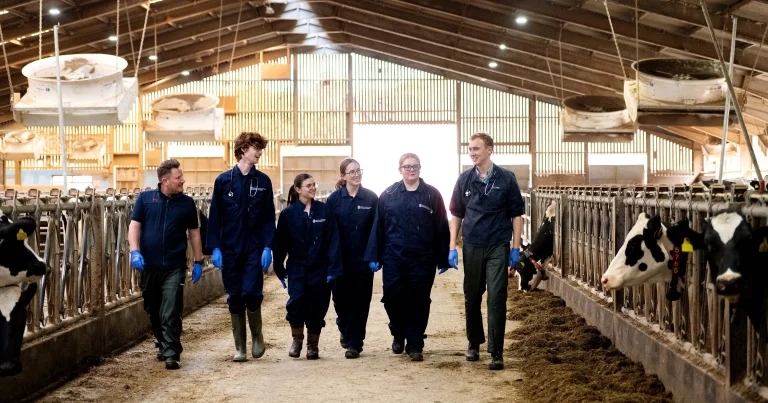14 Aug 2025
Students praised the programme’s practical activities, animal handling experiences and education on the opportunities within the sector.

University of Central Lancashire celebrates its Veterinary Summer School.
The UK’s newest vet school has celebrated the success of its first Veterinary Summer School for aspiring teenagers.
The University of Central Lancashire (UCLan) held a week-long residential programme for 20 students aged 16 and 17 at its Preston campus.
Veterinary service provider Medivet, which entered a multi-year sponsorship with UCLan in 2023 after it opened its vet school, funded the programme.
The summer school was developed to support young people from underrepresented backgrounds who are considering studying and pursuing a career in veterinary medicine.
It comes after a £40 million facility was unveiled at the university in June, with UCLan’s director of veterinary partnerships Pete Holland telling the Vet Times Podcast the institution is focusing on making veterinary education accessible to ethnic minority students and those from lower socio-economic areas.
Teenagers throughout the North West, as well as students from around the country including Brighton, Ipswich, London and Middlesbrough, attended.
The programme consisted of animal handling experiences, practical activities and clinical skill tasters, with sessions delivered by academics and inspirational figures within the industry.
Participants were also given small group coaching and interview support, and they took part in team-based sessions where they learned about the vet sector and the variety of opportunities available within it.
Those who completed the programme are guaranteed an interview for the Veterinary Medicine and Surgery degree course next year if they apply to UCLan.
Vet education lecturer Morven Webster said it had been an “absolutely fantastic week” which she hoped had “made a real difference”.
She added: “Young people who wish to study veterinary medicine face a whole range of barriers, from access to work experience to a lack of support from family and educators.
“Sadly, factors they have no control over, such as their ethnicity or socioeconomic circumstances, can also impact their chances of progressing to veterinary education.
“With the generous support of our delivery partners, Medivet, our superb week-long residential programme was packed with learning and fun social opportunities for a bright and diverse cohort of students.”
Medivet will arrange work experience placements for summer school graduates at its local branch partner practices, and the group also provided vet professionals to support the programme.
Rhian Littlehales, Medivet’s clinical governance director, said the group is “determined to inspire the next generation of vets and break down barriers to this great profession” and “cannot wait to welcome [the students] to our Medivet branches as we continue to support their journey to becoming veterinary professionals”.
Participants praised the hands-on experiences and education on the range of career options available, with one – 17-year-old Miranda Wilding – saying it had “rubber-stamped my feelings on wanting to become a vet”.